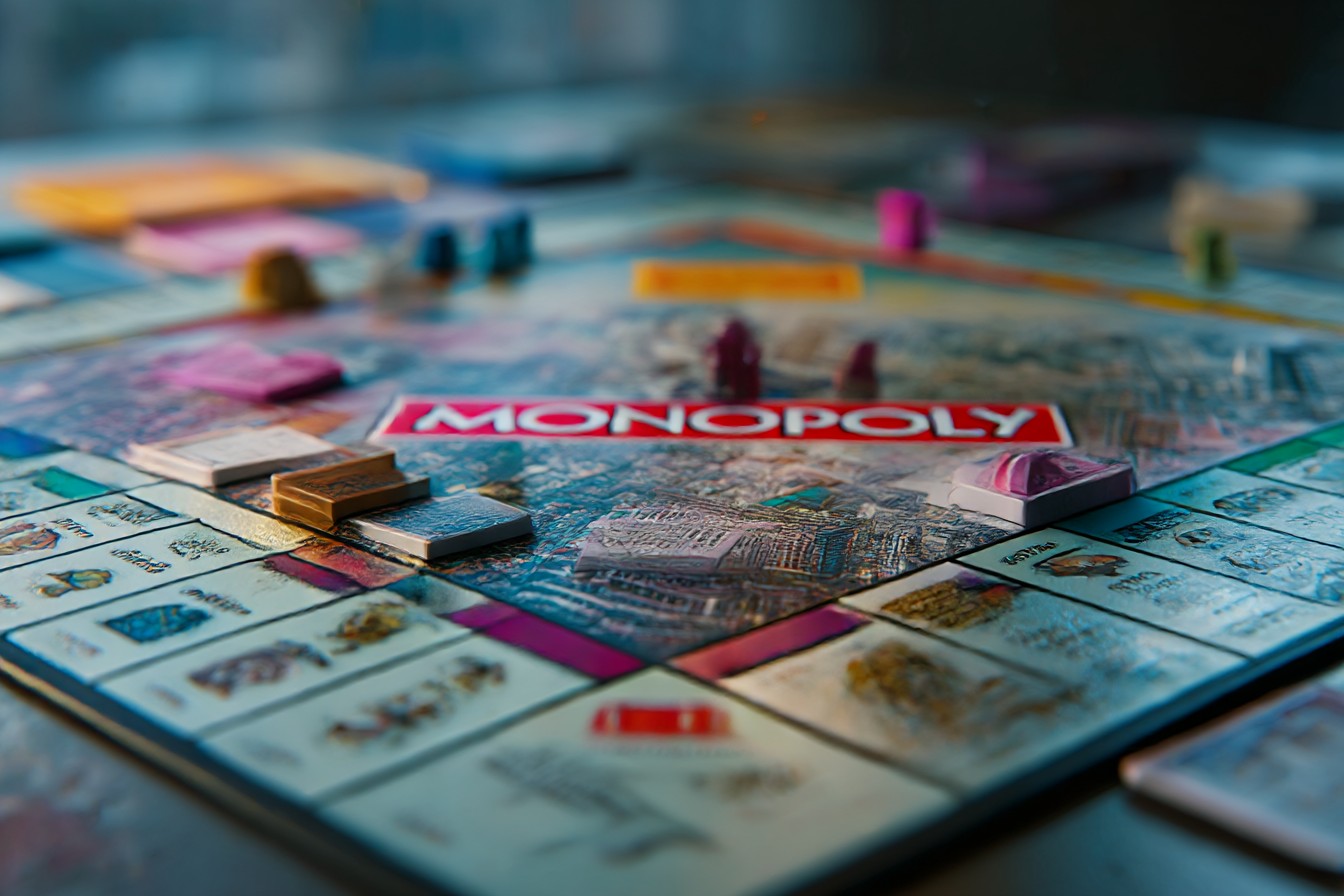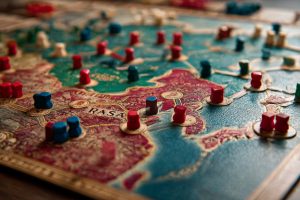Last Tuesday night, my eleven-year-old nephew Tyler comes over acting all cocky because he beat his friends at regular Monopoly three times in a row. Kid thinks he’s some kind of board game genius now, you know? So I figure, alright, let me humble you a bit – I pulled out Monopoly World Edition thinking it’d just be regular Monopoly with fancier property names. Boy was I wrong about that.
Tyler got completely demolished. Not just lost – I’m talking confused, frustrated, kept asking why his usual tricks weren’t working. Made me realize I’d been treating this game like regular Monopoly with different colored money, when it’s actually got some pretty major differences that’ll mess you up if you’re not paying attention.
Here’s the thing that threw both of us off initially – you’re not collecting color groups anymore. You’re collecting entire continents. Sounds simple enough until you’re actually playing and trying to figure out if you should grab that Australian property when you’ve already got two in Europe. Your brain keeps wanting to think small-scale, like “oh I need the green properties,” but now you’re thinking “I need to control all of Asia.” It’s a completely different mental game.
I learned this lesson the embarrassing way during my fourth or fifth game with Jessica and the kids. I’m sitting there proud of myself for getting a couple North American properties because they reminded me of the classic Monopoly spaces, totally ignoring that Madison – my eight-year-old – was quietly buying up every European property that came available. By the time I noticed what she was doing, she basically had continental control locked up and I’m still playing like it’s 1995.
Now I keep track of who owns what continent right from the start. I mean really keep track, not just “oh Dad has some blue ones.” I’m talking about knowing that Madison owns four out of six European properties, which means she’s two away from a monopoly and I better either help her finish it through a trade that benefits me, or do everything possible to block it. This isn’t casual Sunday afternoon Monopoly anymore.
The money situation gets crazy fast too. When someone gets continental control, the rents are just brutal compared to regular Monopoly. I’ve watched games go from everyone having a good time to someone getting wiped out in like two unlucky rolls. Tyler found this out the hard way when he landed on Madison’s developed European monopoly – kid went from feeling confident to basically bankrupt in one turn.
Because of that, I keep way more cash on hand than I would in regular Monopoly. Usually I’m the guy who spends every dollar on properties and development, but World Edition will punish that approach real quick. I try to keep at least six or seven hundred bucks available, even when there’s a property I really want to buy. Getting caught short when you land on someone’s continental monopoly just ends your game immediately.
Those airport spaces are actually pretty clever once you figure them out. At first I thought they were just expensive spaces to avoid, like landing on Boardwalk with hotels. But they’re more like investment opportunities – you collect money from other players and get some control over movement. I won a game last month mainly because I bought airports early and used that steady income to fund bigger property purchases later.
Trading becomes this whole chess match because you’re not just thinking about individual properties anymore. Sometimes it makes sense to give someone a property that helps them complete a continent if it stops someone else from completing a more dangerous one. I actually did this with my brother-in-law Mike – helped him finish South America to prevent Jessica from completing North America, because her monopoly would’ve been way worse for everyone else given where we were on the board.
The Chance and Community Chest cards can really mess with your plans too. Regular Monopoly, you kinda know what to expect from those cards. This version can teleport you halfway around the world and suddenly you’re paying rent in a continent you didn’t even know was developed. Adds this unpredictability that keeps you on your toes but also makes it harder to plan ahead.
Development timing is trickier because the costs are higher but the payoff is also bigger. You really need to make sure you’ve got enough money saved up before you start building, because getting caught halfway through development leaves you vulnerable to everyone else. I’ve seen players get continental control but not have enough cash to develop it properly, and then they just become sitting ducks.
The auction part gets interesting because properties mean different things to different players. A property might be worth two hundred to me but four hundred to someone who’s trying to complete that continent. Reading the table and figuring out when to bid aggressively versus when to let things go becomes this whole psychological game.
What I’ve found works best is picking one continent early and focusing on that while buying just enough properties in other continents to block other people. Don’t try to spread yourself too thin – better to complete one continental monopoly fast than to have a little bit of everything. Plus you can use those blocking properties as trade bait later.

The psychological part is huge too. Everyone can see exactly which continent you’re going for, so people get defensive about trading with you way faster than in regular Monopoly. It’s like playing poker with your cards face up – you gotta be more subtle about your intentions and maybe throw people off by buying random properties sometimes.
Cash flow management becomes life or death because those continental rents can just delete you from the game. Regular Monopoly, you might survive landing on expensive developed properties multiple times if you play it smart. World Edition continental monopolies can literally end your game in one payment. I’ve seen it happen to Tyler twice now, poor kid.
The different continents aren’t just cosmetic either. Some are cheaper to complete but generate less rent, others cost more upfront but pay better long-term. You start learning which continents give you better bang for your buck and which ones might not be worth fighting over. It’s like having multiple investment strategies instead of just “buy everything orange.”
Position tracking matters more because the board is bigger and you might not come back to certain continents for a while. Makes development timing harder to predict, but also creates opportunities if you can figure out traffic patterns. Sometimes a continent looks less attractive until you realize people land there more often than you’d expect.
My coworkers think I’m nuts for analyzing a board game this much, but honestly Tyler still complains that World Edition is too complicated compared to regular Monopoly. He’s probably right – this version makes you think about way more variables, do more complex trades, and manage your money more carefully. But that’s exactly what makes it interesting for adults who’ve played regular Monopoly a thousand times.

The international theme actually adds something meaningful instead of just being fancy window dressing. Different continents have different economics, which creates natural imbalances you can take advantage of if you’re paying attention. It’s not just “collect four railroads” anymore – you’re making strategic decisions about which markets to enter and which ones to avoid.
Tyler’s getting better at it now, but he still says regular Monopoly is easier and he’s not wrong. World Edition requires you to think bigger picture, analyze more complex trades, and be more disciplined with your money. But for parents who’ve played regular Monopoly until we’re sick of it, those complications actually make the game interesting again. The international properties aren’t just renamed Boardwalk and Park Place – they’re completely different mechanics that reward completely different strategies.
Walter’s an Ohio dad who believes Monopoly marathons still count as quality time. He writes about family-friendly classics, house rules that keep the peace, and how to make game night work with actual kids at the table.

Leave a Reply